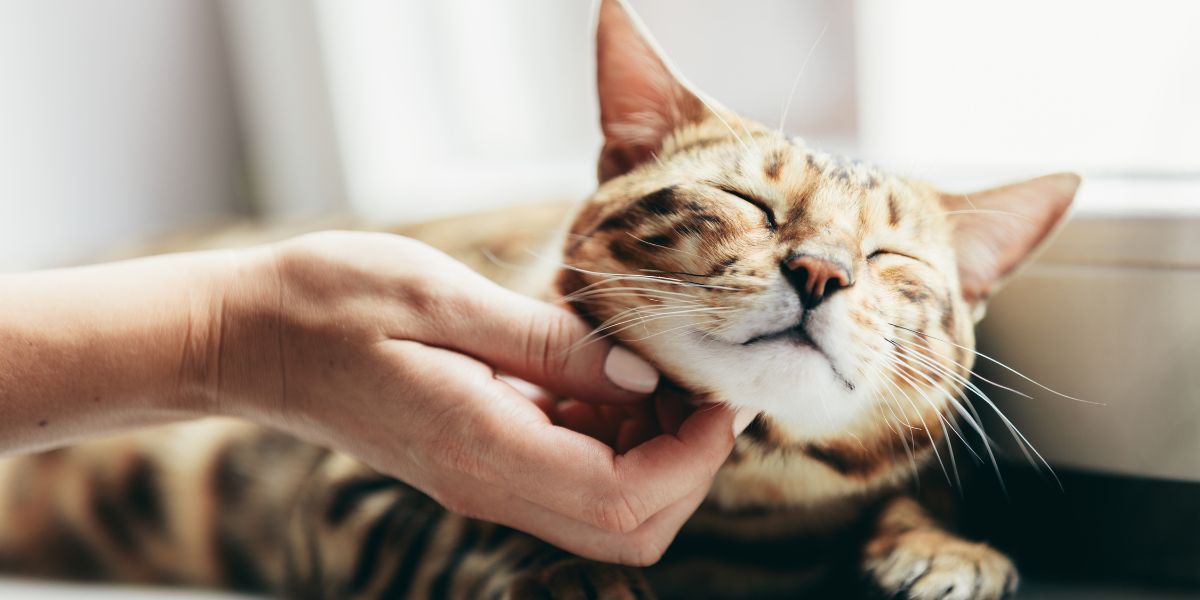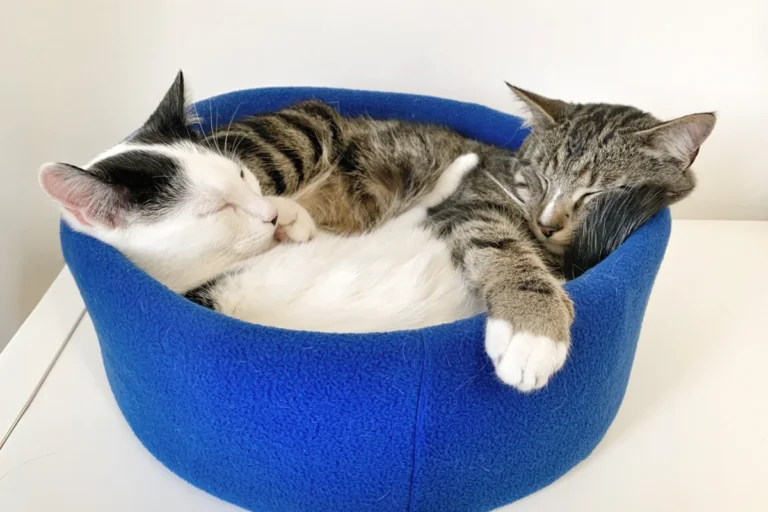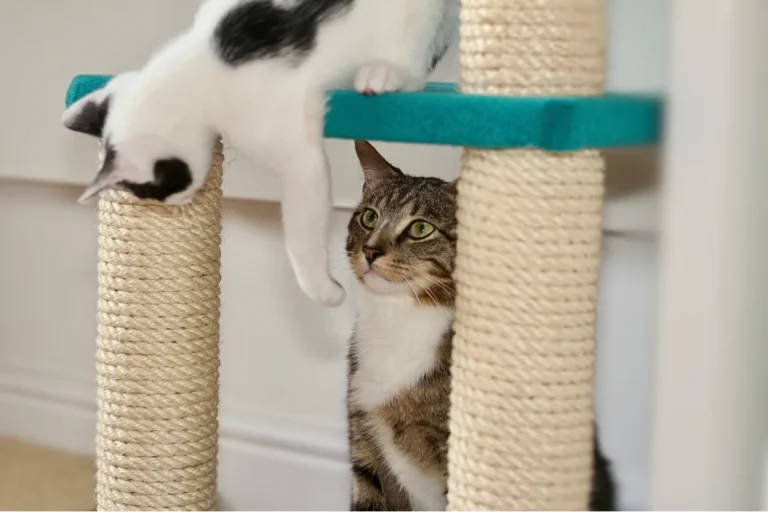Thinking of getting a cat?
Are you thinking about getting a cat? Before you bring a new feline friend into your life, it’s essential to consider various factors to ensure that you’re ready to provide a loving and suitable environment for your future pet. From understanding cat ownership to preparing your home, careful planning is key to a successful relationship with your cat. Here’s everything you need to know.
Commitment and responsibility
Owning a cat is a long-term commitment that requires time, effort, and dedication. Consider whether you’re ready to make a lifelong commitment to caring for a pet. Cats can live for 15 years or more, so it’s essential to be prepared for cat ownership, including:
- Providing food, water and shelter
- Regular veterinary care, including vaccinations, preventive treatments and emergency medical expenses
- Daily interaction, playtime and companionship
- Grooming, litter box maintenance and basic hygiene
Lifestyle compatibility
Before getting a pet, assess whether your lifestyle is compatible with the needs of a feline companion. Consider factors such as:
- Your work schedule and daily routine. Cats require interaction, so it’s essential to have enough time to spend with your cat each day.
- Travel plans. If you frequently travel for work or leisure, consider how you’ll care for your cat in your absence. You can consider pet sitters, boarding facilities or trusted friends and family members.
- Living arrangements. Check whether your living situation allows for pet ownership, including any restrictions on pets imposed by landlords or homeowners’ associations.
Financial considerations
Owning a cat comes with various financial responsibilities, including initial adoption or purchase costs. There are also ongoing expenses for food, supplies, veterinary care and other necessities. Before getting a cat, assess your budget and consider the following financial factors:
- Adoption fees or purchase price. Depending on where you acquire your cat (eg shelter, rescue organisation, breeder), there may be fees to take into account.
- Food and supplies: Budget for high-quality cat food, litter, litter boxes, scratching posts, toys, grooming supplies and other essentials.
- Veterinary care. Prepare for routine veterinary visits, vaccinations, spaying or neutering costs. Plus, preventive medications (eg flea and tick prevention, heartworm prevention) and potential emergency medical expenses.
Allergies and health considerations
Consider whether you or any members of your household have allergies to cats or other potential health concerns. While some individuals may be allergic to cat dander or saliva, others may have respiratory issues exacerbated by exposure them. If you’re unsure about allergies, consider spending time with cats to assess your sensitivity before making a decision.
Choosing the right cat
When it comes to getting a pet, it’s essential to choose one that aligns with your lifestyle, preferences and expectations. Consider factors such as:
- Age: Decide whether you prefer a kitten, adult cat or senior cat, taking into account factors such as energy levels, training needs and lifespan.
- Personality: Each cat has a unique personality, so spend time getting to know different cats to find one that matches your temperament and lifestyle.
- Compatibility with existing pets: If you already have pets at home, consider how a new cat will integrate into your household dynamics and whether any existing pets have special needs or preferences that should be taken into account.
Preparing your home
Before bringing a cat home, it’s essential to prepare your living space to ensure a safe and comfortable environment for your new feline friend. Consider the following steps:
- Cat-proofing your home: Remove or secure potential hazards such as toxic plants, small objects that could be swallowed, electrical cords and other dangers.
- Providing essential supplies: Set up a designated area for your cat with food and water bowls, a litter box, a scratching post, a cosy bed and toys for enrichment.
- Creating vertical space: Cats enjoy climbing and perching, so provide opportunities for vertical exploration with cat trees, shelves or window perches.
- Establishing a safe outdoor environment: If you plan to allow your pet outdoor access, ensure that your yard or outdoor space is securely fenced and free from potential hazards such as toxic plants, traffic and predators.
Understanding cat behaviour and communication
Familiarise yourself with basic cat behaviour and communication to better understand your cat’s needs and preferences. Learn how to interpret your cat’s body language, vocalisations, and social cues, and develop strategies for positive reinforcement training and behaviour modification.
Veterinary care and preventive health
Regular veterinary care is essential for maintaining your cat’s health and well-being throughout their life. Before getting a cat, establish a relationship with a trusted veterinarian and schedule an initial wellness exam for your new pet. Be prepared to follow your veterinarian’s recommendations for vaccinations, parasite prevention, dental care and other preventive measures to keep your cat healthy and happy.
Adoption versus purchase
Explore your options for adoption or purchase to find the right companion for your family. Consider adopting a feline from a local animal shelter, rescue organisation or foster home, where you can find cats of all ages, breeds and personalities in need of loving homes. Alternatively, you may choose to purchase a cat from a reputable breeder, ensuring that the cat has been responsibly bred and raised in a healthy environment.
Long-term planning and contingency plans
Consider the long-term implications of pet ownership and develop contingency plans for unexpected circumstances. Consider factors such as:
- Financial planning: Budget for ongoing expenses and set aside emergency funds for unexpected veterinary costs or other emergencies.
- Future life changes: Anticipate how major life changes such as moving, changes in employment or family additions will impact your ability to care for your pet and make appropriate arrangements.
- Emergency preparedness: Develop a plan for emergencies such as natural disasters, medical emergencies or temporary disruptions in care, ensuring that your cat’s needs will be met even in challenging circumstances.
Conclusion
It’s important to remember that it’s a significant decision that requires careful consideration and preparation. By taking the time to assess your readiness for pet ownership, understand the responsibilities involved, and make informed choices, you can create a loving and enriching home for your new feline friend. Whether you’re adopting a kitten, welcoming an adult cat into your home or providing a forever home to a senior, the bond you’ll share with your cat will bring joy, companionship and fulfilment for years to come.






